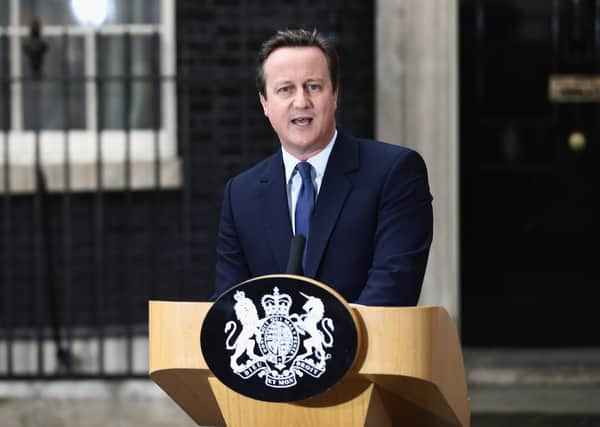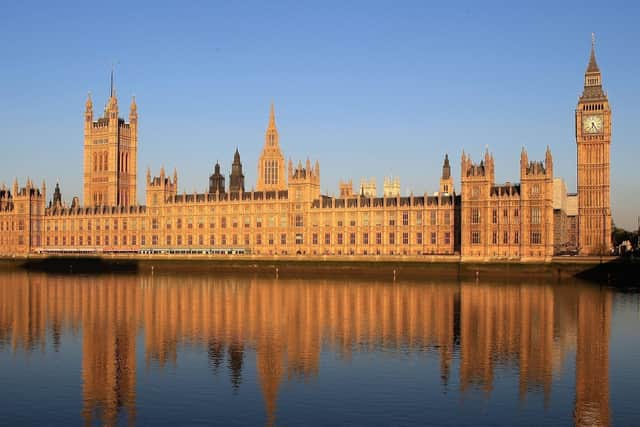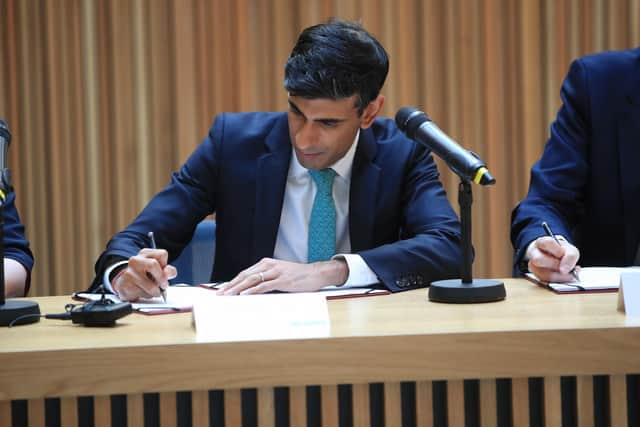Greensill lobbying scandal; how to clean up politics – Bernard Ingham


My eyebrows, of eternal fascination for sketchwriters, nearly disappeared into my Covid-enforced thatch, when I read the chap superintending Government procurement was working for a scandal-hit company that had sought Government Covid supply contracts. And with Cabinet Office approval, too!
What on earth is going on?
My credulity had already been stretched to breaking point when I read that David Cameron admittedly a few years after he left No 10, had been lobbying for the very same Greensill company.
Advertisement
Hide AdAdvertisement
Hide Ad

After all, had not Mr Cameron forecast that lobbying would be the next scandal to hit the system?
What an unholy mess. How on earth did we, as a nation that prides itself on the integrity of its system in this corrupt world, fall into it? Has Whitehall and Westminster forgotten that you have not only to be clean but to be seen to be pristine, too?
You would have thought they would have learned by now after the damage to the reputation of Parliament caused by the MPs’ expenses scandal.
There are no easy answers but I offer three possible explanations.
Advertisement
Hide AdAdvertisement
Hide Ad

First, standards generally in Britain have been going downhill for a long time. Yet there is no allegation here of private profiteering, even if Mr Cameron reportedly stood to win a king’s ransom from his connection with Greensill had it not collapsed.
He was doing what comes naturally in a democracy – lobbying.
Second, Ministers have for a long time been keen to fertilise the Civil Service with secondments from industry with the aim of improving management, procurement and value for money.
Let’s face it, the system’s record in defence and latterly Covid procurement, leave aside vaccines, has not been distinguished.
Advertisement
Hide AdAdvertisement
Hide AdMargaret Thatcher imported a chap from Marks & Spencer to try to sharpen up the system. Now we learn Mr Cameron introduced Crown Representatives – currently some 22 top brass from the private sector bringing their expertise to the Government machine and with privileged access even to No 10.
Why, Lex Greensill, the fallen financier, was one of them. And now we learn that another Crown Representative was a director of Greensill on top of the revelation that the ex-head of Whitehall procurement was a director of Greensill while working as a civil servant.
My third contributing factor is lobbying itself. It may be argued that Mr Cameron abused his ex-prime ministership by lobbying the Chancellor and three other Ministers on behalf of Greensill.
But lobbying is not an offence. Indeed, it is an industry. It is every citizen’s right to pursue legislators about their interests or prejudices.
Advertisement
Hide AdAdvertisement
Hide AdThe most worrying aspect of the current situation is that it has resulted from a commercial failure. What else is going on that we know nothing about?
As if Boris Johnson did not have enough worries. He has instituted an independent inquiry under an eminent lawyer. And Lord Pickles is clearly concerned about where the boundaries lie.
We shall see whether my analysis of the causes holds water. The big question remains: what to do about it when problems are inherent in the drive to secure more private sector expertise in the Civil Service and for high-flying civil servants to have experience of private enterprise. The revolving door inevitably brings allegations of abuse and unfair advantage.
All wrapped up in this is the question of share ownership by both Ministers and officials. Should they be allowed to invest or required to dispose of portfolios on coming to office? Is it not enough to put shares in an arm’s length trust, with a further obligation to declare an interest?
Advertisement
Hide AdAdvertisement
Hide AdRestoring manifest integrity will not be easy. The essential ingredients are openness, clear rules with penalties for offenders, longer “quarantines” on leaving government service, a greater sense of responsibility and a general recognition, to repeat, that the government machine needs not only to be clean but be seen to be.
If you serve government you can’t have t’ toffee and t’ ha’penny.
Comment Guidelines
National World encourages reader discussion on our stories. User feedback, insights and back-and-forth exchanges add a rich layer of context to reporting. Please review our Community Guidelines before commenting.